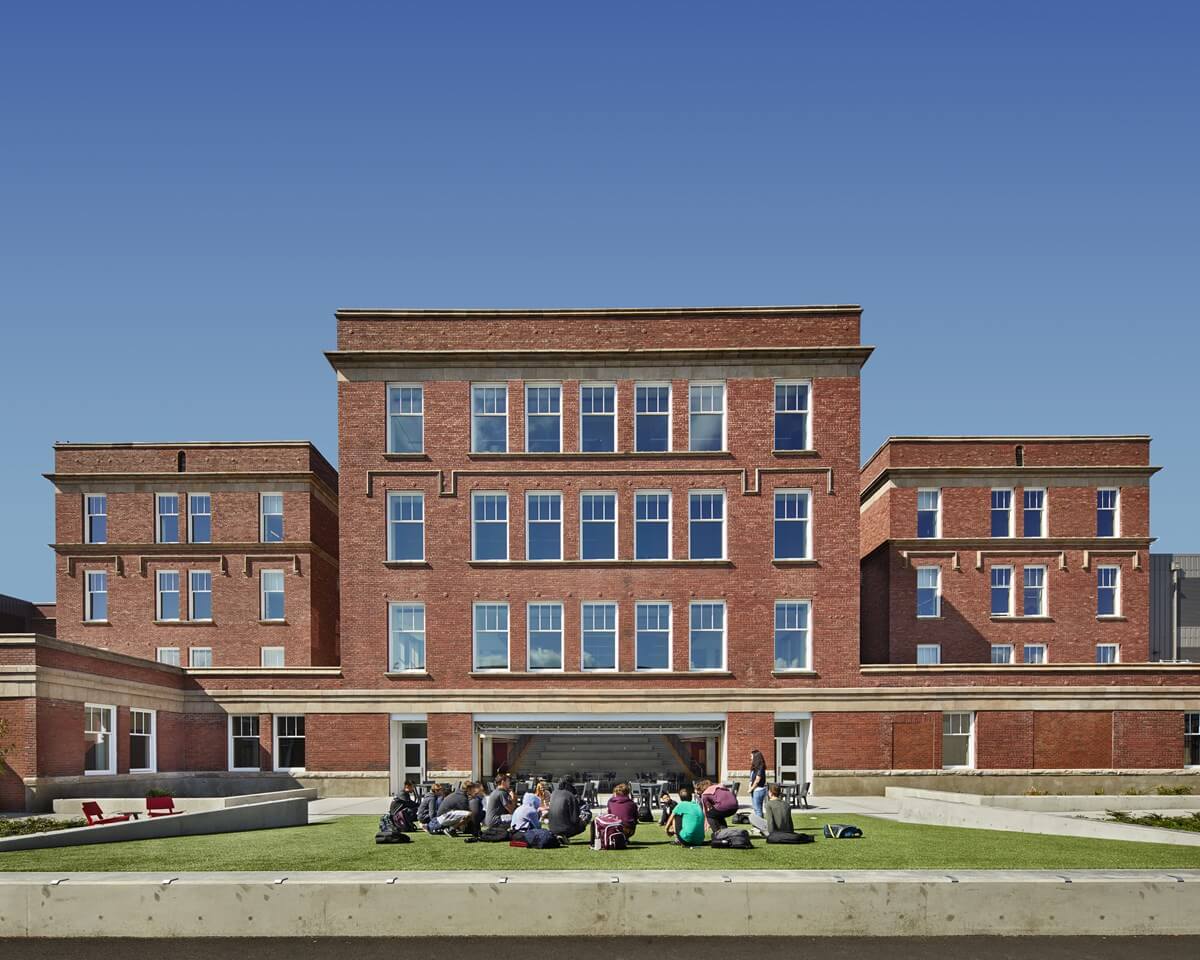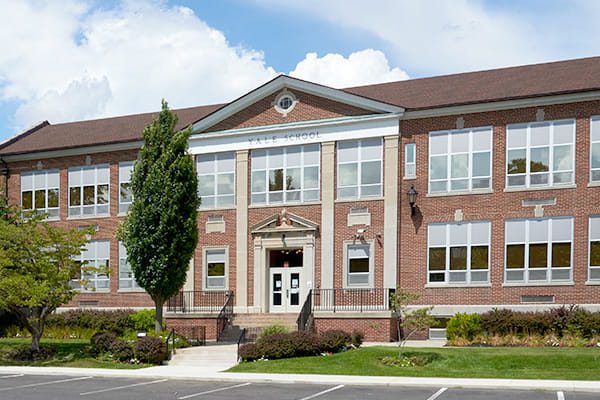The Importance of Local Assistance to Save Temecula Schools Today
The Importance of Local Assistance to Save Temecula Schools Today
Blog Article
Recognizing the Value of Institutions in Youngster Development and Neighborhood Growth
Schools serve as essential institutions for child growth and community development, giving environments where academic achievements are matched by the cultivation of social skills and direct exposure to diverse perspectives. These educational settings not just promote crucial reasoning and reliable communication yet also foster empathy through collaborative jobs. Colleges' involvement with regional areas via service-learning efforts strengthens the bond in between households and academic establishments. This symbiotic partnership emphasizes the significance of colleges in nurturing active citizenship and lifelong learning behaviors. Nevertheless, what are the specific mechanisms through which these institutions attain such profound influences?
Academic Accomplishment
Academic success acts as a cornerstone of child growth, providing the foundation upon which future understanding and success are built. Schools play an essential function in promoting this scholastic growth, using structured settings where youngsters can obtain necessary expertise and cognitive abilities. Standardized educational program ensure that students gain effectiveness in core topics such as mathematics, scientific research, and language arts, which are critical for both greater education and learning and professional opportunities.
In enhancement to passing on basic scholastic skills, colleges likewise cultivate essential thinking, problem-solving abilities, and intellectual inquisitiveness. These cognitive competencies are crucial for browsing complicated real-world scenarios and adapting to the ever-evolving needs of the modern-day work environment. Educators, as facilitators of learning, employ diverse instructional methods to satisfy different discovering styles, thus taking full advantage of specific trainee potential.
In addition, academic success is very closely connected to self-esteem and motivation. Children who experience academic achievements are more likely to establish a positive self-concept and a lifelong passion for learning. Colleges also supply numerous sources, such as collections and modern technology, which better enhance the instructional experience and prepare students for a technologically advanced society.
Social Skill Development
Beyond academic success, the function of colleges in social skill growth is indispensable. Schools work as a main place for children to find out and exercise crucial social skills such as conflict, participation, and interaction resolution. In the structured atmosphere of a class, pupils communicate with peers, instructors, and various other school team, supplying countless chances to create these vital capabilities.
Reliable social skill development in colleges is promoted with team activities, collective tasks, and extracurricular programs. These communications aid pupils recognize social standards, develop empathy, and promote a feeling of area. Team projects show pupils how to function with each other in the direction of a common objective, listen to various point of views, and navigate differences constructively.

The farming of social skills during institution years lays a foundation for future individual and professional partnerships. Save Temecula Schools. As trainees grow, the capacity to effectively communicate and team up comes to be progressively essential, emphasizing the institution's crucial role in holistic kid growth
Direct Exposure to Variety
Exposure to variety in schools is essential to cultivating an inclusive mindset and broadening students' point of views. Schools act as a microcosm of the wider society, and encountering diverse cultures, languages, and socioeconomic histories within this environment gears up pupils with essential abilities for browsing an learn the facts here now increasingly globalized world. This direct exposure encourages empathy, decreases prejudices, and promotes common regard among peers.
Varied class additionally boost social and cognitive development. Study shows that trainees who connect with peers from different backgrounds display far better problem-solving skills and creativity. They learn to value different viewpoints, which enhances classroom conversations and fosters an extra dynamic understanding experience. This understanding of variety prepares students for future work environments that value modern skills.

Area Engagement
The advantages of varied classrooms extend past the college wall surfaces, cultivating a strong sense of neighborhood engagement among trainees. By engaging with peers from various cultural, socioeconomic, and ethnic histories, pupils acquire a wider point of view and a gratitude for variety. This direct exposure motivates them to end up being active citizens that agree to add favorably to their communities.
Colleges that highlight area interaction frequently incorporate service-learning jobs, which allow pupils to address real-world problems while using scholastic skills. These tasks not just enhance students' understanding of their coursework yet likewise infuse a sense of responsibility and compassion. In addition, collaborations in between institutions and regional organizations supply pupils with chances to take part in neighborhood occasions, better solidifying their function as aggressive neighborhood participants.
In addition, adult and neighborhood involvement in institutions strengthens the bond between instructional organizations and the neighborhoods they offer. Through these efforts, institutions play a pivotal function in supporting area involvement and cultivating societal development.
Lifelong Learning Habits
Developing long-lasting understanding habits is essential for a kid's continuous growth and versatility in an ever-changing globe. Colleges play a critical role in instilling these habits by developing an atmosphere that promotes interest, essential reasoning, and a love for expertise. With diverse educational programs and after-school activities, educators encourage students to discover various additional hints subjects, evaluate details critically, and apply their finding out to real-world circumstances.

Furthermore, colleges provide a structured environment where kids can establish self-discipline and time monitoring abilities, both of which are vital for continuous learning. By emphasizing the importance of setting goals, assessing development, and adapting approaches, universities prepare pupils to browse the intricacies of grown-up life, guaranteeing they remain lifelong students and factors to society.
Conclusion
In final thought, colleges are crucial in fostering child development and area development by providing settings favorable to academic accomplishment, social ability development, and exposure to diversity. Ultimately, colleges grow lifelong knowing behaviors, gearing up people with the necessary knowledge and abilities to contribute positively to society.
In the structured environment of a classroom, trainees connect with peers, instructors, and other college staff, providing numerous possibilities to create these vital abilities.
In essence, direct exposure to variety within schools not only enriches specific pupils yet likewise reinforces the social textile of the area as a whole.
The benefits of diverse classrooms prolong beyond the institution wall surfaces, cultivating a solid feeling of neighborhood interaction amongst trainees.Institutions that helpful hints stress community involvement frequently incorporate service-learning tasks, which allow pupils to attend to real-world troubles while using scholastic skills. Collaborations between colleges and neighborhood companies supply students with opportunities to get involved in community events, further strengthening their role as aggressive neighborhood members.
Report this page